Publications
Articles, publications, books, tools and multimedia features from the U.S. Institute of Peace provide the latest news, analysis, research findings, practitioner guides and reports, all related to the conflict zones and issues that are at the center of the Institute’s work to prevent and reduce violent conflict.
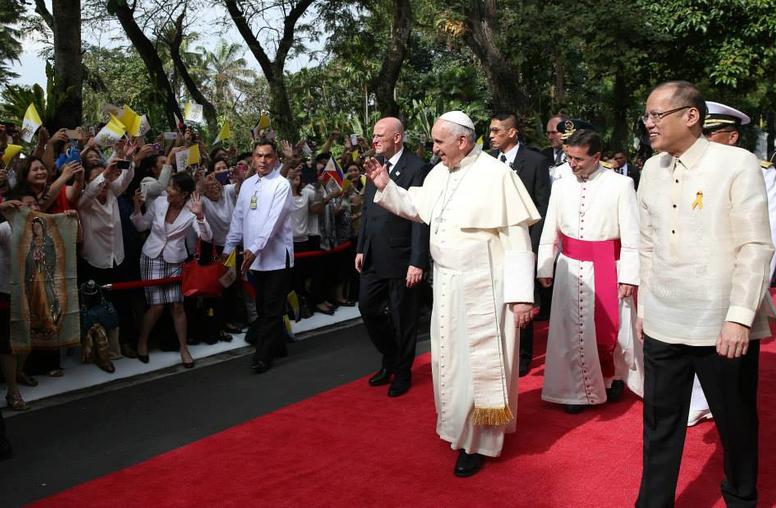
How the Catholic Church Can Bolster Alternatives to Violence
The Catholic Church, with its 2.1 billion adherents worldwide, has been pivotal in some of the most significant nonviolent struggles in modern history. Many will recall the iconic image of Filipino religious sisters confronting military forces and a kleptocratic dictatorship of Ferdinand Marcos in prayerful resistance during the 1986 “people power” revolution. Today, Filipino religious leaders, facing another violent dictator, Rodrigo Duterte, once again are the leading face of nonviolent resistance. The Vatican is discussing these and other examples of powerful nonviolent movements as it rethinks its long-held doctrine of “just war.”
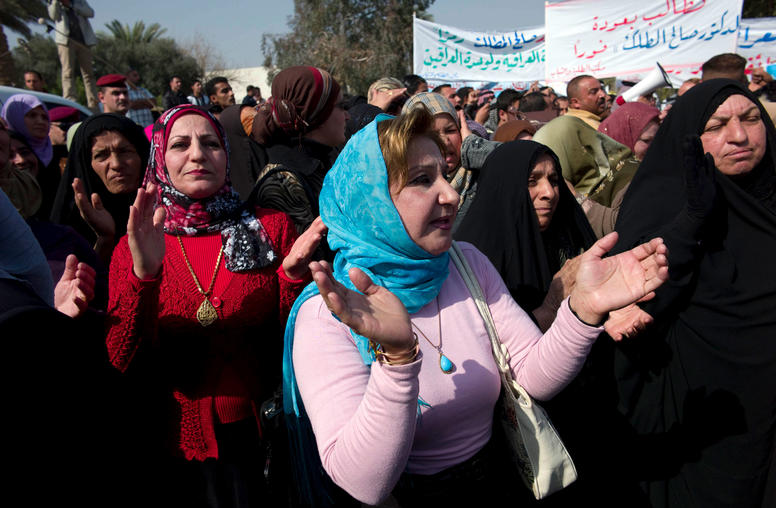
Want Women at Peace Talks? Mandate It
The evidence on ending violent conflict is clear: when women participate in negotiations it helps achieve peace. A study of 182 signed peace accords over two decades showed these accords were 35 percent more likely to last at least 15 years when women were involved. Yet 17 years after the United Nations first called for including women in all peace talks globally, women remain sidelined. The lack of structural incentives for change is the key—until we get the incentives right, exclusion will rule.

Carla Koppell on Resolution 1325 on Women, Peace and Security
Carla Koppell discusses U.N. Security Council Resolution 1325 for the protection of women and girls, and gives her analysis about the work still needs to be done to include women in peace negotia
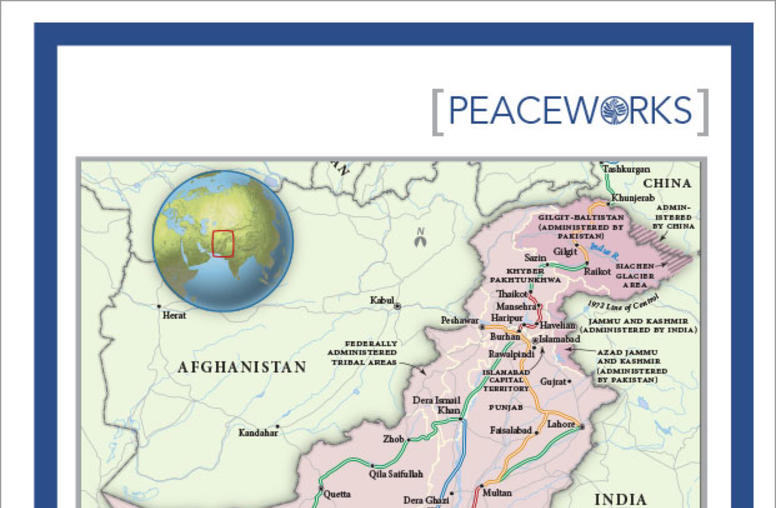
The China-Pakistan Economic Corridor
The China-Pakistan Economic Corridor (CPEC)—which connects China’s western province of Xinjiang to the Pakistan’s Arabian Sea coastline in Balochistan province—is the first large-scale attempt to bolster economic ties between Beijing and Islamabad, after decades of...

Neil Kritz on Hamas and Fatah Pending Agreement
Neil Kritz previews the pending agreement to heal a decade of division between Hamas and Fatah, and explains what effects the reconciliation might have on the larger Middle East Peace Process.
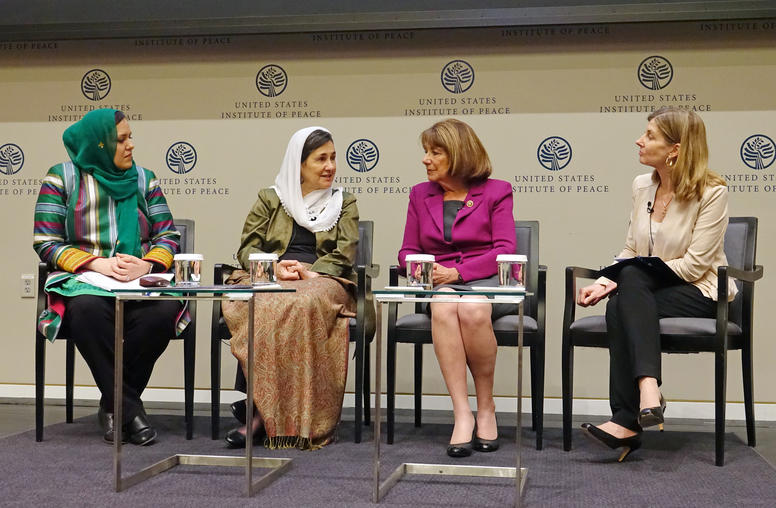
Afghan Women Step Up in Local, National Taliban Talks
Amid a spate of recent Taliban attacks across Afghanistan, I heard a different but equally important story during a visit to Kabul last week: women from major cities to rural villages are taking action to defuse local tensions...
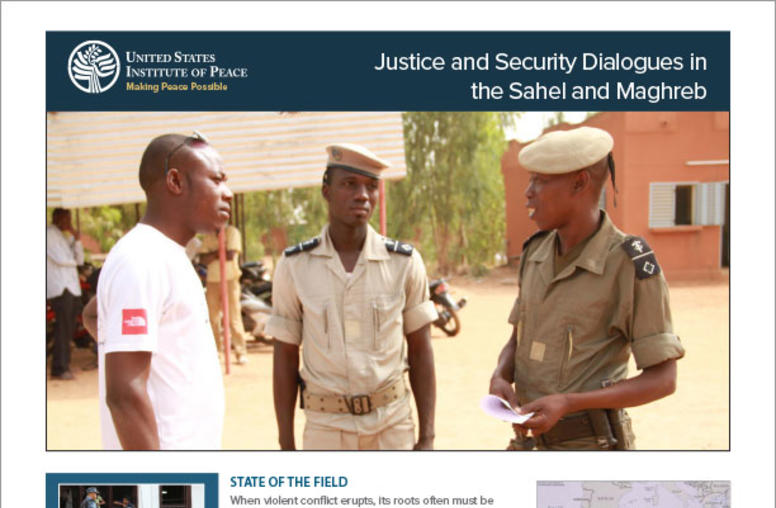
Justice and Security Dialogues in the Sahel and Maghreb
When violent conflict erupts, its roots often must be found and healed at the community level. Amid such turmoil, however, government officials, police, and community leaders are likely to mistrust each other—a breakdown in relations that opens space for security threats, including violent extremism and organized crime.
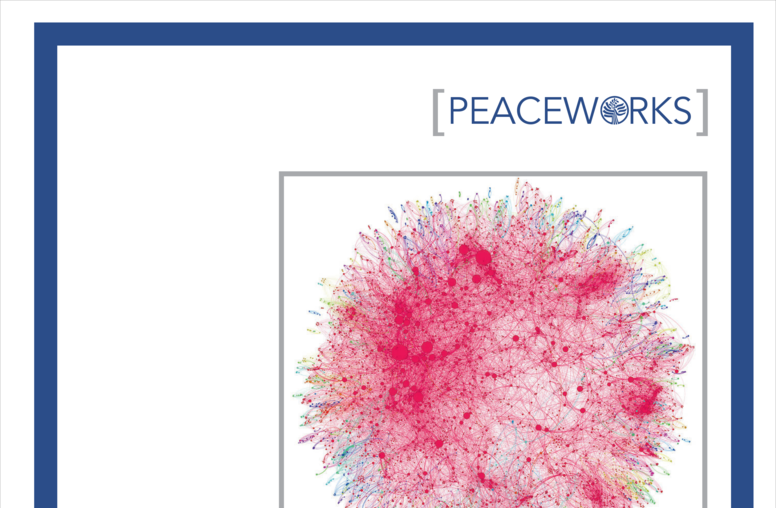
Systems Thinking for Peacebuilding and Rule of Law
Many peacebuilding interventions seeking to support rule of law get stuck. The reason they get stuck may have little to do with the law and its technical dimensions and more with a tendency to treat certain rule of law systems as if they were...

Systems Thinking for Peacebuilding and Rule of Law (Arabic)
إن نهجنا التقليدي المتبع في بناء السلام وعملية إصلاح سيادة القانون يبدو جيدًا؛ حيث الأهداف الطموحة، وضخ الموارد، وفرق الخبراء الذين يعملون بشكل مكثف. ومع ذلك، يبدو أننا نادرًا ما ننجح في خلق إصلاحات ناجحة ومستدامة حقًّا. لماذا نتعثر؟ تكمن إحدى الإجابات المحتملة في كيفية النظر إلى الأنظمة التي نعمل بها؛ لأننا نميل إلى معالجة العديد من نظم بناء السلام وسيادة القانون كما لو كانت أنظمة الساعة، وهي أنظمة منتظمة ويمكن التنبؤ بها بشكل كبير. وفي الواقع، فإن البيئات التي نعمل بها أشبه بأنظمة السحب من حيث إنها غير منتظمة، وغير منظمة، وغير متوقعة. واستنادًا إلى مجال التفكير المنظومي، يدعو هذا التقرير ممارسي بناء السلام إلى استخدام أكثر من منظور عند دراسة الأنظمة والمشاكل التي يواجهونها. وفي بعض الأحيان، سنضطر إلى التعامل مع المشاكل من منظور تقني زمني. وفي أحيان أخرى، سنضطر إلى استخدام منظور أوسع يركز على تعقيد النظام الأكبر. وكثيرًا ما سنحتاج إلى استخدام كلا المنظورين في التعامل مع المكونات المختلفة لجهود الإصلاح في الوقت نفسه.

Sarhang Hamasaeed Discusses Recent Events in Kirkuk
Sarhang Hamasaeed reviews a tense week in which the Iraqi Army and Kurdish forces clashed in the disputed area of Kirkuk. With ISIS driven out of Kirkuk, renewed tensions dating back to 2014 have re-emerged between the Iraqi Army and Popular Mobilization Forces Hamasaeed tells us why a political dialogue process is central to protecting minorities, and avoiding Shia and Sunni clashes.